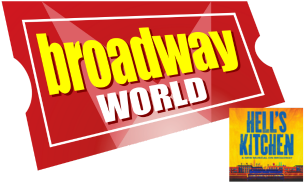BWW Reviews: MOBY DICK a New Classic With Reimagined Opera
Storytelling at its best, San Francisco Opera's co-production of new opera "Moby Dick" overwhelms upon sight and hearing. The magnificent production has some of the most exquisite music ever written for the stage. Jack Heggie's grand cinematic score moves faultlessly from solemn, contemplative moments to lightning and thunder during a storm, making up for minor scenic limitations and becoming the narrator of the piece.
"Call me Ishmael," the famous opening line spoken by the narrator in Herman Melville's classic book - which librettist Gene Scheer has based the opera on - still finds its place in the opera, but it makes its entrance in an unexpected moment thanks to a brilliant and clever idea from the opera's creators.
The dramatic retelling of "Moby Dick" stays mostly true to the novel, following Captain Ahab on his obsessed search for revenge against the white whale, Moby Dick, that took his leg and forced him to walk on a wooden peg. But while the overall story revolves around Ahab, Heggie's music reaches its greatest peaks when conveying the conflicts of other characters found on the whaling ship Pequod. Ahab does not command the audience quite so well as he commands his own ship. Jay Hunter Morris has a fabulous voice and strongly connects with the audience in a telling second act aria, but he lacks the gripping presence of a crazed man. Maybe the blame for the character's weakness lies with its creators' choice to make the character a tenor, a vocal part that does not always best express Ahab's tottering personality.
Or perhaps the more compelling characters that surround Ahab make Morris appear less powerful. Tempted to take Ahab's life to save the rest of the crew, first mate Starbuck desperately tries to turn his captain's course. Morgan Smith brings a tender and fragile strength of mind, character and body to the role. Stephen Costello engages audiences as they follow the character arc of Greenhorn, a sailor new to whaling who develops a deep friendship with the "pagan" Queequeg after he compares the man's gentle kindness to the hypocritical personalities surrounding him. Jonathan Lemalu is a solid presence throughout the opera, a mentor to Greenhorn worth admiring. His prayers open the opera and play a moving part in the opera's final moments.
Despite singing the only female part in the opera, a cabin boy pants role that appears in few scenes, Talise Trevigne leaves a lasting impression on audiences with her beautiful soprano voice and her stirring moments after the character goes mad in the second act. She and Robert Orth as Mr. Stubb provide a small amount of humor, as well, when the ship's residents dance and sing to the cabin boy's tambourine. The San Francisco Opera Chorus also provides chilling, robust vocals.
Still, the significant character from which the opera derives its title makes an anticlimactic appearance that does not take full advantage of Elaine McCarthy's gorgeous projections. "Moby Dick" opens with a delicate overture accompanied by projections of bubbles made to look like star constellations. As the music slowly escalates, lines connect like constellations to reveal the shape of a ship that matches the ropes, masts and wide-open deck of the Pequod, a curved, white-planked stage designed by Robert Brill. Projections later create the boats and harpoons that the great whale overturns, creating a visual feast that only fails in a lackluster staging of the epic finale. A giant eye teases the audience, but never reveals more of the giant's body. Stormy waves and undersea bubbles are all that lead the audience to believe Ahab has lost his fight as the captain basically lies down on the ground while a set piece transition to the next scene covers him.
Whatever the new piece lacks, however, it makes up for in colossal, yet minimal sets and mesmerizing characters whose stories are told through contrasting dissonant and melodic tones. Like its namesake, "Moby Dick" the opera is destined to become a hallmark in history.
--
MOBY DICK
San Francisco Opera
Oct 23, 26, 30 Nov 2
http://sfopera.com/
Videos
